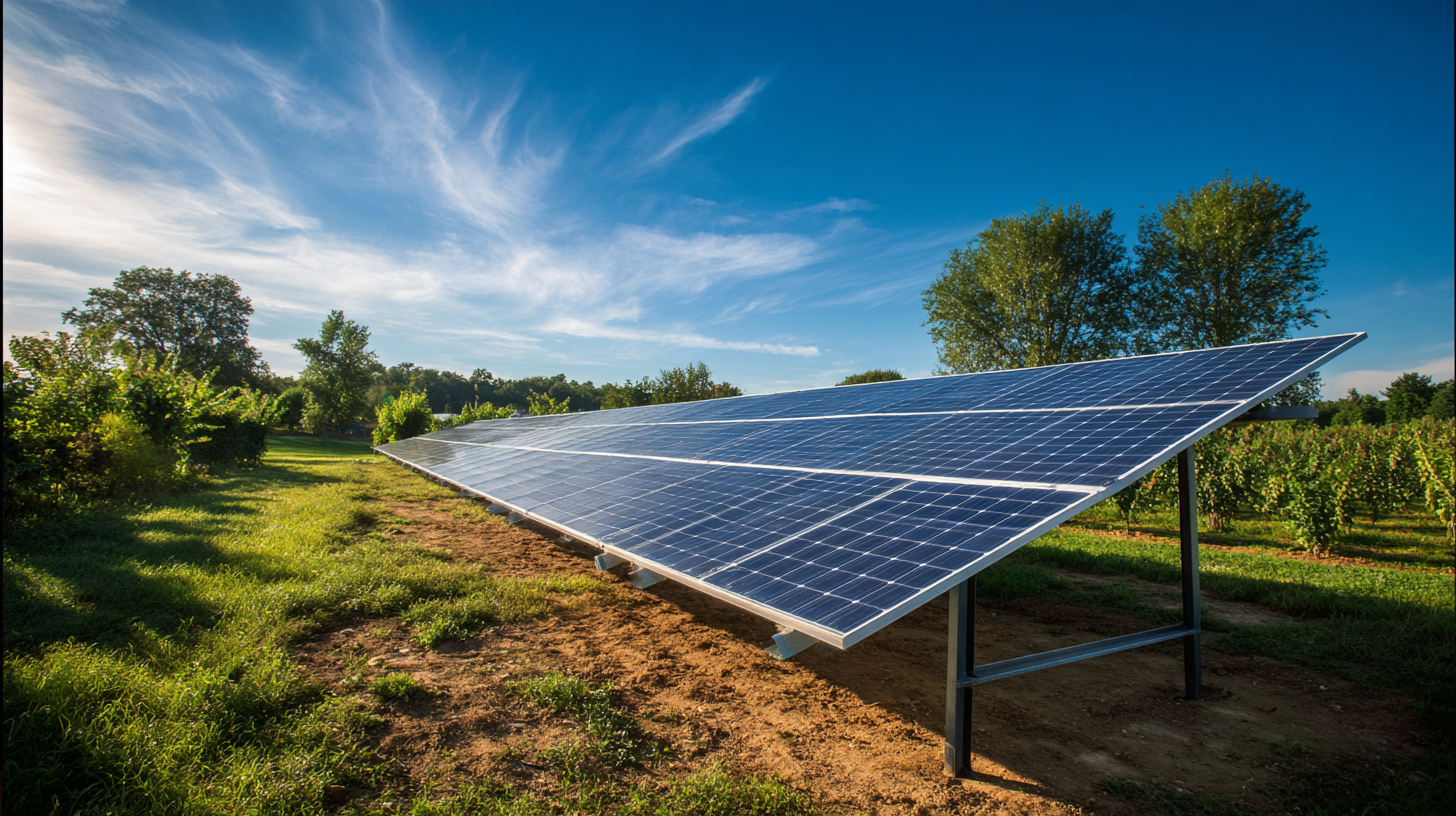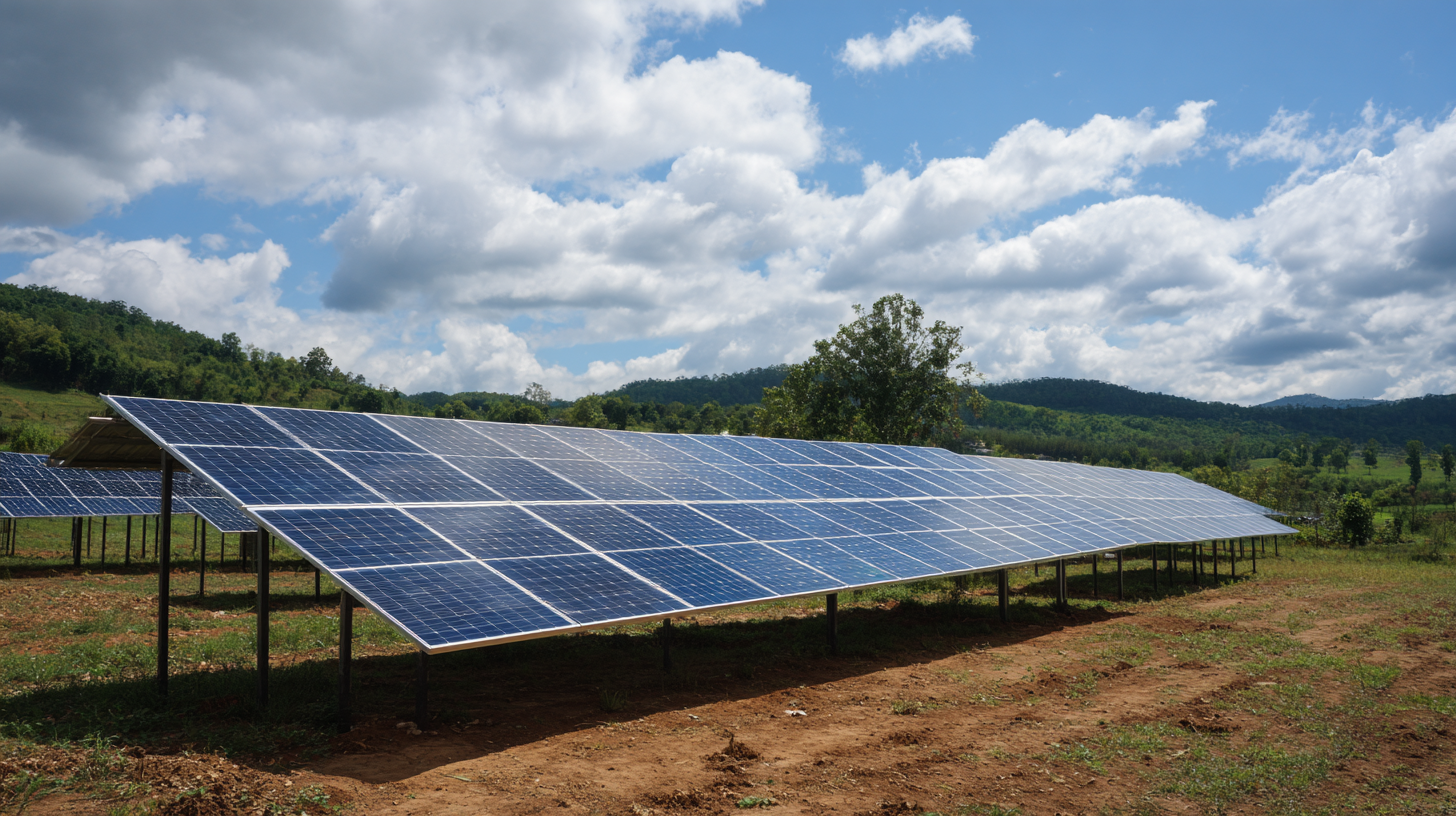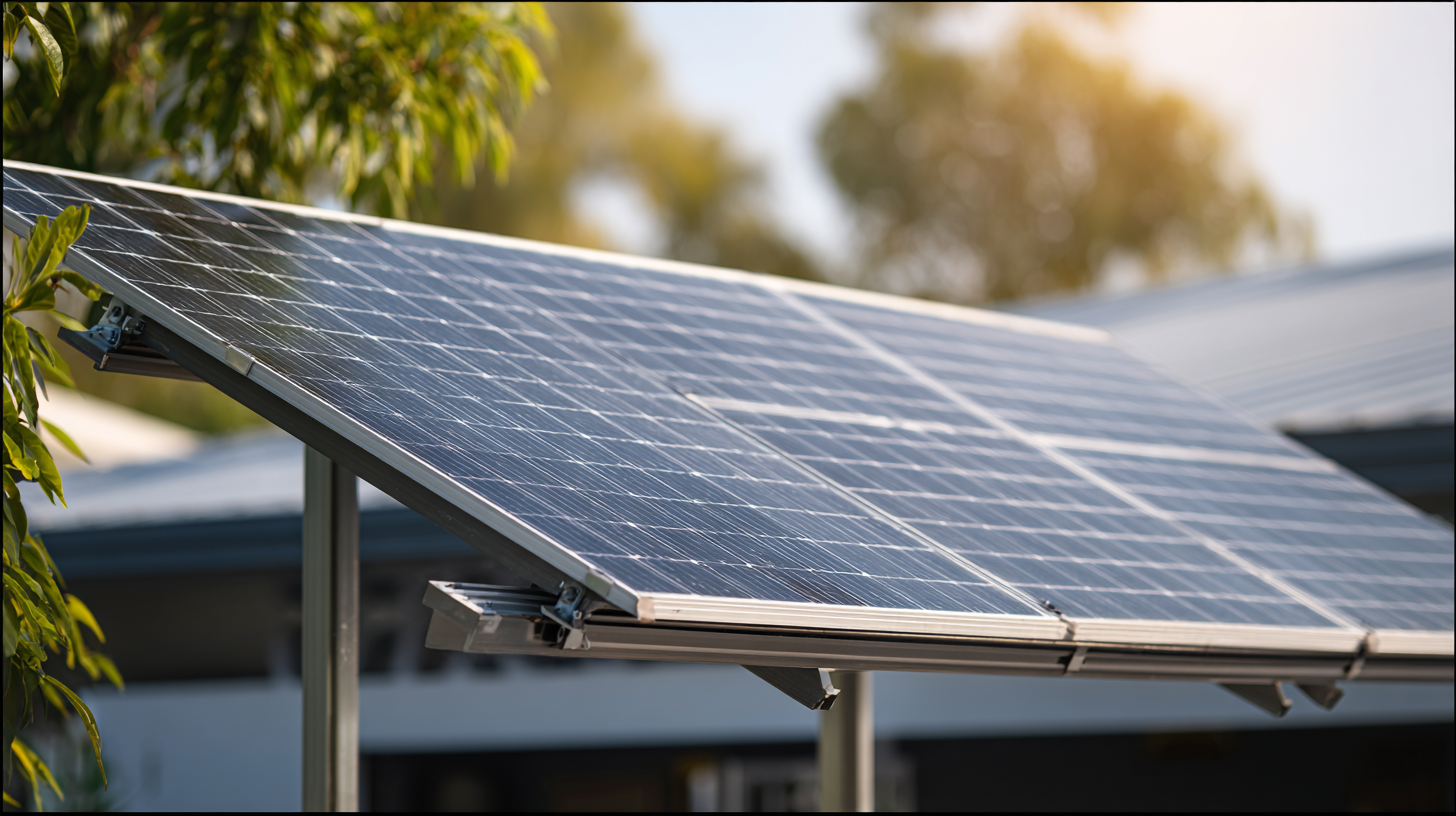7 Compelling Reasons to Choose the Best Solar Panel for Home Energy Solutions
In an era where sustainable energy solutions are paramount, choosing the right solar panel for home energy needs has never been more critical. According to a report by the International Energy Agency (IEA), the global solar energy capacity reached 800 gigawatts in 2020 and is projected to grow exponentially, given the increasing demand for renewable energy sources. Renowned for their quality and innovation, Chinese manufacturers are now providing exceptional solar products that cater to a global audience. With advancements in technology, these solar panels not only boost energy efficiency but also reduce long-term electricity costs, making them an attractive investment for homeowners. By selecting high-quality solar panels, consumers position themselves at the forefront of an energy revolution, aligning their household energy supply with ecological sustainability and energy independence.

Benefits of Solar Energy: Understanding Cost Savings and Long-Term Investments
Solar energy has emerged as a transformative solution for homeowners looking to cut costs and invest in sustainable living. One of the most significant benefits is the potential for substantial cost savings on utility bills. By harnessing the power of the sun, households can reduce their dependence on traditional energy sources, leading to lower monthly expenses. As energy prices continue to rise, solar panels provide a proactive approach to mitigate these increases, allowing homeowners to lock in their energy rates for years to come.

In addition to immediate financial savings, investing in solar panels is a wise long-term investment. The installation of solar energy systems can significantly increase property value, making homes more attractive to potential buyers in a market that increasingly favors eco-friendly features. Moreover, various government incentives and tax credits further enhance the financial appeal of solar investments. This combination of cost savings and added value establishes solar energy not just as an economical choice, but also as a vital component of a future-focused lifestyle that prioritizes sustainability and energy independence.
Environmental Impact: How the Best Solar Panels Reduce Carbon Footprint
Choosing the best solar panels for your home not only enhances energy efficiency but significantly reduces your carbon footprint, contributing to a healthier planet. High-quality solar panels harness sunlight effectively, converting it into electricity while minimizing waste and environmental impact. By switching to solar energy, homeowners can significantly cut down on greenhouse gas emissions produced by traditional fossil fuels, making a strong case for the adoption of renewable energy sources.

When considering solar panels, it's essential to assess their efficiency ratings and certifications. Look for panels with higher efficiency to ensure optimal energy production. Additionally, consider the durability and warranty of the solar products, as quality installations tend to last longer and offer better performance. This not only benefits your home energy solutions but also enhances the ecological advantages by reducing resource consumption in the long run.
Moreover, taking advantage of local incentives and rebates for solar installations can simplify the financial aspect. Many regions offer programs that lower initial costs, making it easier for homeowners to invest in sustainable energy. By educating yourself on these options, you can make a well-informed decision that benefits both your home and the environment.
Efficiency Matters: Comparing Solar Panel Technologies and Their Performance
When it comes to selecting solar panels for home energy solutions, efficiency is paramount. Different solar panel technologies, such as monocrystalline, polycrystalline, and thin-film, exhibit varying levels of efficiency. According to the National Renewable Energy Laboratory (NREL), monocrystalline panels offer the highest efficiency rates, often exceeding 20%. This performance advantage is attributed to their high purity silicon cells, which allow for better light absorption and higher energy output. Homeowners aiming to maximize their energy production should consider investing in these higher-efficiency models, especially when space for installation is limited.
In comparison, polycrystalline panels typically achieve efficiencies between 15% to 20%, making them a solid choice for those with more roof space but on a tighter budget. Meanwhile, thin-film technology stands out as the least efficient option, with rates often below 15%. However, they do provide advantages in flexibility and weight, which could be beneficial in certain installations. Understanding these performance metrics is crucial for homeowners making informed decisions, as the long-term energy yield directly impacts both environmental benefits and financial savings from reduced energy bills.
Solar Panel Efficiency Comparison
Increased Property Value: The Economic Benefits of Installing Solar Panels
Investing in solar panels not only supports environmental sustainability but can also significantly enhance your property's value. Recent research from Loyola University reveals that solar installations do not detract from property values; in fact, they often boost them. Homes equipped with solar energy systems can command higher selling prices, making them more attractive to potential buyers. As energy independence becomes increasingly important, properties harnessing solar power are viewed as more desirable, leading to a competitive edge in the real estate market.
The economic benefits of installing solar panels extend beyond property value enhancement. The ongoing expansion of rooftop solar energy is vital for promoting economic growth and energy independence. The U.S. saw over $8 billion claimed in tax credits for home energy upgrades, including solar installations, highlighting the rising consumer interest in renewable energy solutions. Moreover, as solar technology continues to evolve and costs decline, more homeowners are realizing the financial advantages tied to solar energy, positioning this green solution as a key player in today’s real estate landscape.
7 Compelling Reasons to Choose the Best Solar Panel for Home Energy Solutions - Increased Property Value: The Economic Benefits of Installing Solar Panels
| Aspect | Details |
|---|---|
| Initial Investment | Average cost for a residential solar panel system is between $15,000 and $25,000. |
| Property Value Increase | Homes with solar panels can see an increase in property value by approximately 4.1% on average. |
| Energy Savings | Homeowners can save between $20,000 and $30,000 in energy costs over 20 years. |
| Tax Incentives | Federal tax credits may cover 26% of installation costs through 2023. |
| Return on Investment (ROI) | Average ROI for solar panel systems is estimated at about 20%. |
| Environmental Impact | Solar panels can reduce carbon footprint by up to 3.8 tons of carbon dioxide per year. |
| Increased Demand | Homebuyers are increasingly looking for energy-efficient homes with solar installations. |
Government Incentives: Maximizing Financial Advantages Through Solar Energy Programs
Government incentives for solar energy are a significant driver for homeowners considering solar panel installations. These programs vary by region but often include tax credits, rebates, and grants that can drastically reduce the upfront costs of solar systems. For instance, the Federal Investment Tax Credit (ITC) allows homeowners to deduct a substantial percentage of their solar installation costs from their federal taxes, making the transition to solar energy more financially viable.
In addition to federal incentives, many state and local governments offer additional financial benefits, such as property tax exemptions or performance-based incentives that pay homeowners for the energy produced by their solar panels. These financial programs can elevate the return on investment for solar energy systems, often turning what seemed like a lofty investment into a smart financial decision.
By leveraging these incentives, homeowners can not only reduce their energy bills but also contribute to a more sustainable future without bearing the full financial burden upfront.